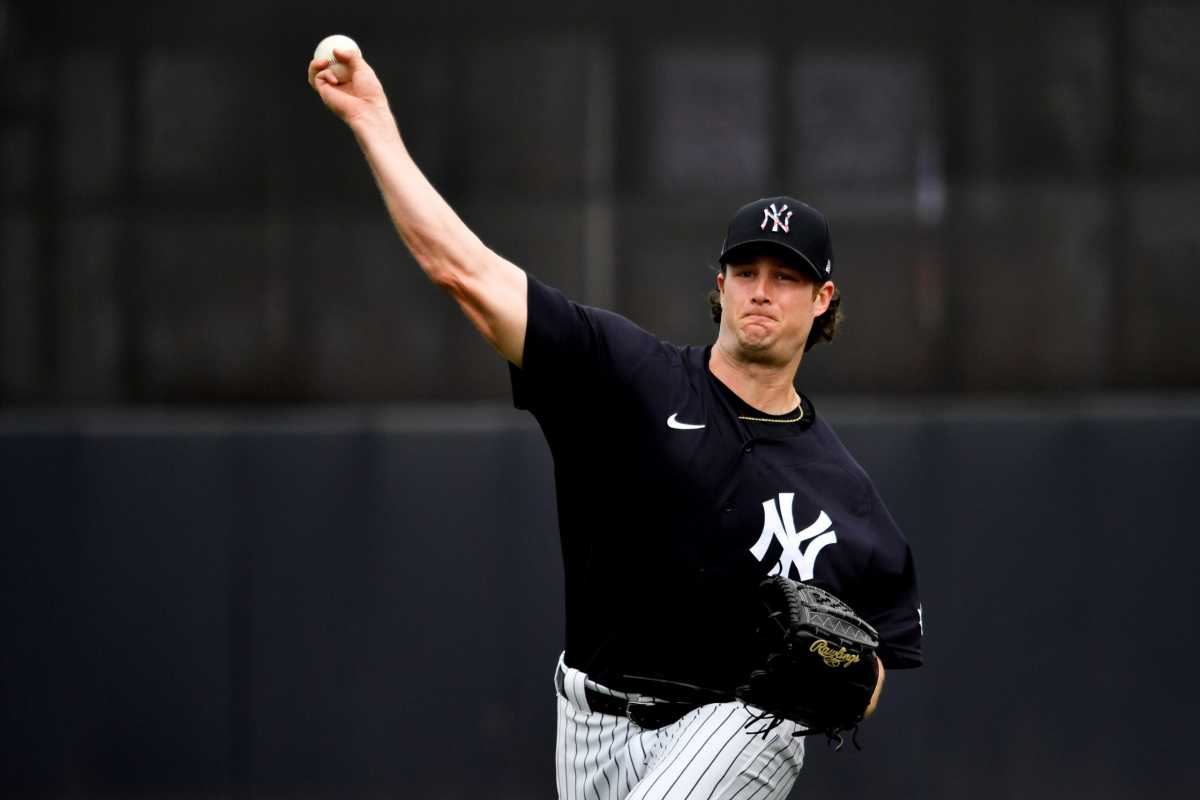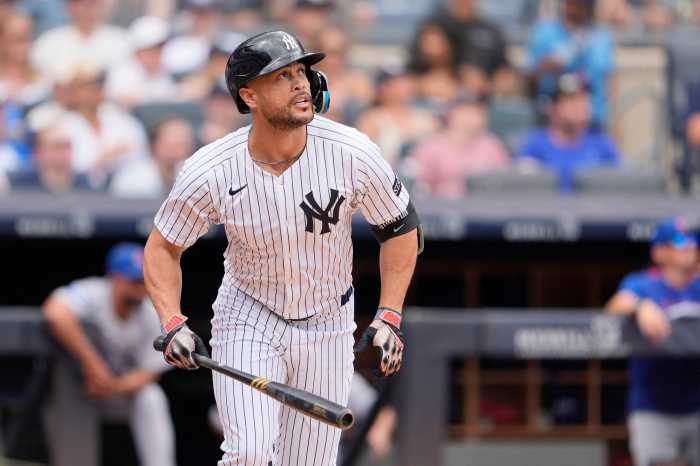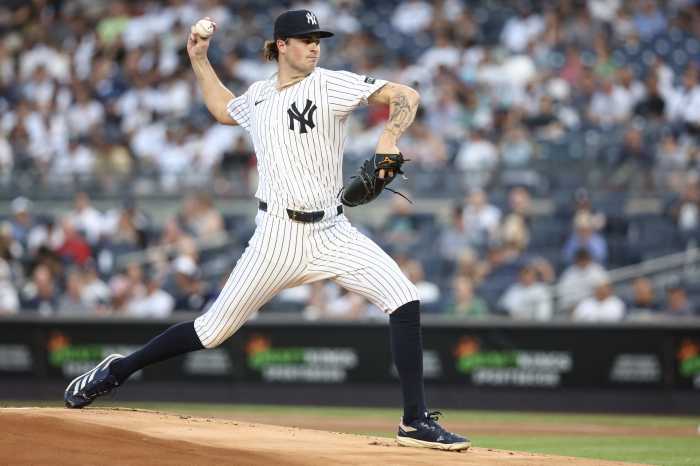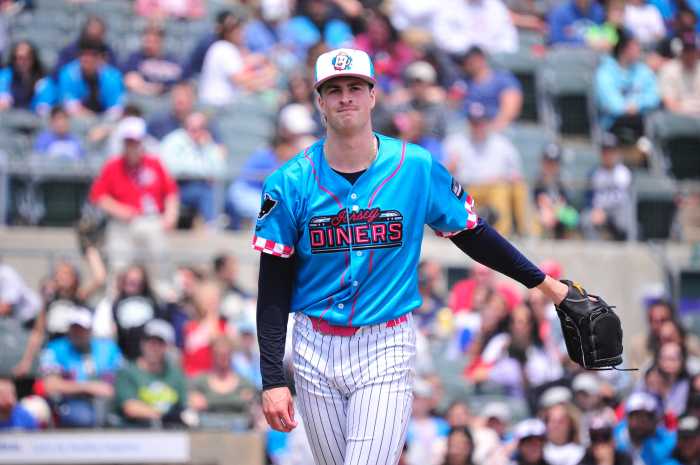The resulting paranoia of the Houston Astros’ sign-stealing scandal has worked its way from the batter’s box to the pitcher’s mound.
And New York Yankees ace Gerrit Cole finds himself smack dab in the middle of it all.
Cincinnati Reds pitcher Trevor Bauer, who has developed into something of a whistleblowing defender of the game, rehashed previous concerns about an overwhelming number of MLB pitchers who use illegal sticky substances to improve their effectiveness.
Doctoring baseballs is a tale as old as time in the majors. From its earliest days, pitchers would scuff them, utilize the now-outlawed spitball, and —for what is believed to be the better part of the last 70 years — have used foreign substances to affect its performance.
It has ranged from vaseline to the most popular substance, pine tar, whose stickiness allows the ball to stay on the pitcher’s fingers longer, thus creating more spin on the ball.
The more spin, the more action the pitch has in-flight to fool the batter, resulting in drastic cuts on breaking balls while fastballs have the illusion of rising in the zone.
Of course, the Astros were leading the way in that aspect as well, at least according to Bauer, who called out Cole in a piece published in The Player’s Tribune.
“I mean, when I see a guy go from being a good pitcher for one team and spinning the ball at 2,200 rpm, to spinning the ball at 2,600 or 2,700 in Houston, I know exactly what happened,” he wrote.
As the New York Post’s Joel Sherman pointed out, Cole’s spin rate on his pitches after joining the Astros did see a noticeable jump, but Statcast — the analytics site that tracks these numbers — did not take into account his predominant pitch types from his time with the Pirates (2013-2017) and Astros (2018-2019).
“As identified by Statcast, Cole’s spin rate on his four-seam fastball in his final season in Pittsburgh (2017) was 2,164 revolutions per minute, compared to 2,379 rpm in his first Astros season (2018) and 2,530 rpm in his second Astros season last year. The Statcast data, though, has Cole throwing three-and-a-half times more four-seamers than sinkers in 2017, at a time when the sinker was by far the key pitch in his arsenal. The system was just three years old then and has annually gotten better at identifying pitch types. Cole said it had his 2017 usage ratios close to backward.”
Cole also denied any sort of wrongdoing when Sherman asked him about it, citing a fully healthy arm in Houston while Astros pitching coach Brent Strom pushed the righty to throw more four-seam fastballs — which Cole was able to get the most spin on.
That could very well be the reason, but the Astros’ nightmarish offseason of scandal has shaken the trust of those around baseball and the fans.
Bauer, though, has been harping on this for a few years now, complaining as early as 2018 about the Astros using illegal substances to gain an unfair advantage on the mound.
Cole isn’t the only one to hit new heights within the Astros’ ranks over the last few years.
Justin Verlander’s impressive career looked to be winding down as age caught up to him with the Detroit Tigers. From 2013-2017, he went 64-49 with a 3.56 ERA and a 8.7 strikeouts-per-nine-innings average.
But after joining the Astros in his ages 34, 35, and 36 seasons — a time when even the best pitchers slow down — Verlander found a new gear. He’s 42-15 since coming to Houston with a 2.45 ERA and a 12.1 strikeouts/per-nine-innings mark.
That includes a 2019 Cy Young-winning season where he went
Charlie Morton was nothing more than a bottom-of-the-rotation arm in his first nine MLB seasons with the Atlanta Braves, Pirates, and Philadelphia Phillies, going 46-71 with a 4.54 ERA.
Upon joining the Astros, Morton went 29-10 in two years — his age 33 and 34 seasons — with a 3.36 ERA. It is worth noting, however, that he finished third in the AL Cy Young Award voting last year with the Tampa Bay Rays with a 16-6 record and 3.03 ERA.
Major League Baseball looks as though it’s trying to nip this in the bud already as Sherman reported that it will be enforcing Rule 6.02 — prohibiting pitchers to bring foreign substances on the mound — this season to its fullest extent.
There has not been a penalty for such an action since 2014 when Yankees pitcher Michael Pineda clearly had pine tar on his neck in a start against the Red Sox.






































